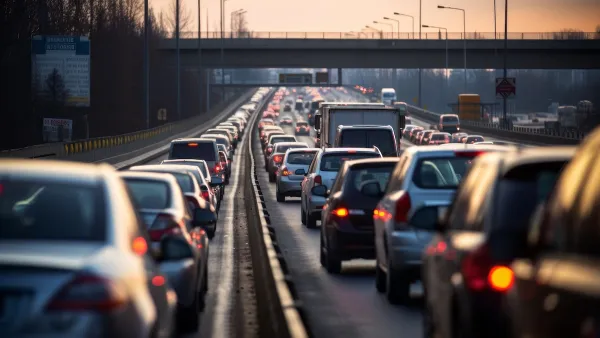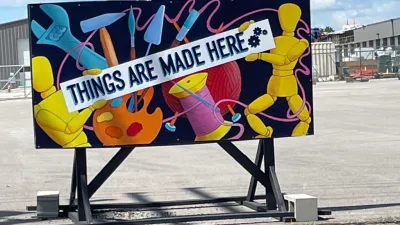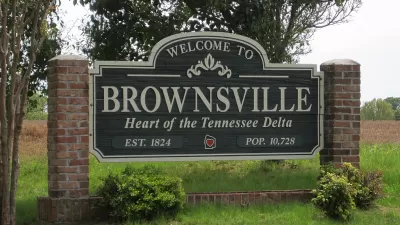Automobile industry subsidies are an inefficient way to support economic development. Even worse, policies intended to support automobile manufacturers and recover loans can be economically harmful.
Automobile industry subsidies are an inefficient way to support economic development. Even worse, policies intended to support automobile manufacturers and recover loans can be economically harmful.
Domestic vehicle manufactures were once leaders in profits, employment and innovation, but now have low profits and average wages, and depend on government subsidies. GM and Chrysler currently employ less than 0.1% of the U.S. workforce, and are contracting. Industry advocates exaggerate domestic vehicle manufacturer bankruptcy job losses by including all related employment. Without domestic manufactures Americans would continue to purchase, service and produce vehicles (many foreign manufactures have US factories), and many affected employees will find other jobs or are soon scheduled to retire. This is not to deny that auto company bankruptcies harm many employees and investors, but there is little reason to favor this industry over others with better futures.
Even worse, efforts to support domestic vehicle producers could distort public policies in economically, socially and environmentally harmful ways. Large, fuel inefficient vehicles are the U.S. manufactures most profitable products. If U.S. citizens and public officials consider themselves vehicle industry shareholders, they may favor policies that favor inefficient vehicles and encourage automobile ownership. This has already occurred: in December 2008 the federal government stopped proposed increases in vehicle fuel efficiency standards on grounds that they threaten domestic manufacturers' competitiveness and profitability. Even worse would be transport policies favoring automobile travel over more efficient alternatives to support the automobile industry.
A few months ago we commissioned analysis by a leading economics firm to model the number of jobs created by various types of expenditures (described in Smart Transportation Economic Stimulation: Infrastructure Investments That Support Strategic Planning Objectives Provide True Economic Development, at www.vtpi.org/econ_stim.pdf). This indicates that in 2006, each million dollars shifted from fuel expenditures to a typical bundle of consumer goods adds 4.5 jobs to the U.S. economy, and each million shifted from general motor vehicle expenditures (purchase of vehicles, servicing, insurance, etc.) adds about 3.6 jobs. Public transit expenditures create a particularly large number of jobs since it is labor intensive.
These impacts are likely to increase in the future as international oil prices rise, U.S. oil production declines, and petroleum and vehicle production become more automated. Although exact impacts are uncertain and impossible to predict with precision, between 2010 and 2020 a million dollars shifted from fuel to general consumer expenditures is likely to generate at least six jobs, and after 2020 at least eight jobs. This indicates that current planning decisions can support future economic development by encouraging transportation system diversity and efficiency, so consumers can reduce the amount they must spend on vehicles and fuel. For example, transport policies and investments that halve U.S. per capita fuel consumption would save consumers $300-500 billion annual dollars, provide comparable indirect economic benefits, and generate 3 to 5 million domestic jobs, far more than the number of jobs generated by current subsidies to domestic automobile manufactures.
For more information
Todd Litman (2006), "Changing Travel Demand: Implications for Transport Planning," ITE Journal, Vol. 76, No. 9, (www.ite.org), September, pp. 27-33; at www.vtpi.org/future.pdf.
Todd Litman (2009), Smart Transportation Economic Stimulation: Infrastructure Investments That Support Strategic Planning Objectives Provide True Economic Development, VTPI (www.vtpi.org); at www.vtpi.org/econ_stim.pdf.
Jeff Rubin and Meny Grauman (2009), "How Big Will the Post-Recession US Vehicle Market Be?" StrategEcon, CIBC World Markets Newsletter (http://research.cibcwm.com), 2 March 2009; at http://research.cibcwm.com/economic_public/download/feature1.pdf.

Planetizen Federal Action Tracker
A weekly monitor of how Trump’s orders and actions are impacting planners and planning in America.

Maui's Vacation Rental Debate Turns Ugly
Verbal attacks, misinformation campaigns and fistfights plague a high-stakes debate to convert thousands of vacation rentals into long-term housing.

San Francisco Suspends Traffic Calming Amidst Record Deaths
Citing “a challenging fiscal landscape,” the city will cease the program on the heels of 42 traffic deaths, including 24 pedestrians.

Defunct Pittsburgh Power Plant to Become Residential Tower
A decommissioned steam heat plant will be redeveloped into almost 100 affordable housing units.

Trump Prompts Restructuring of Transportation Research Board in “Unprecedented Overreach”
The TRB has eliminated more than half of its committees including those focused on climate, equity, and cities.

Amtrak Rolls Out New Orleans to Alabama “Mardi Gras” Train
The new service will operate morning and evening departures between Mobile and New Orleans.
Urban Design for Planners 1: Software Tools
This six-course series explores essential urban design concepts using open source software and equips planners with the tools they need to participate fully in the urban design process.
Planning for Universal Design
Learn the tools for implementing Universal Design in planning regulations.
Heyer Gruel & Associates PA
JM Goldson LLC
Custer County Colorado
City of Camden Redevelopment Agency
City of Astoria
Transportation Research & Education Center (TREC) at Portland State University
Jefferson Parish Government
Camden Redevelopment Agency
City of Claremont






























